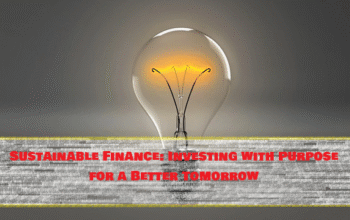Navigating Personal Finance in a Post-Pandemic World: What You Need to Know
The COVID-19 pandemic changed much about how we live, work, and especially how we manage our money. As the world emerges from this unprecedented crisis, personal finance has taken on new complexities and opportunities. The economic upheaval, job market shifts, and changing consumer habits have created a financial landscape unlike any before. For individuals seeking stability and growth, adapting to these changes is not just smart — it’s essential.
In this comprehensive guide, we’ll explore key insights and practical strategies for navigating personal finance in a post-pandemic world.
The Pandemic’s Lasting Impact on Personal Finance
The pandemic exposed vulnerabilities in many people’s financial lives:
- Income volatility: Millions faced layoffs, furloughs, or reduced hours, emphasizing the fragility of relying on a single income source.
- Emergency savings gaps: Many lacked sufficient emergency funds to weather the storm.
- Increased debt: Credit cards and loans ballooned for some as a coping mechanism.
- Shift to digital finance: Contactless payments, online banking, and digital investments surged.
Understanding these changes helps set the stage for smarter money management today.
1. Build a Robust Emergency Fund
If there’s one lesson the pandemic taught, it’s the importance of having a financial buffer.
- Aim for 6 to 12 months of essential expenses: Given job market uncertainty, a larger emergency fund is advisable.
- Keep funds liquid: Use high-yield savings accounts or money market funds to earn some interest without sacrificing accessibility.
- Automate contributions: Make building this fund a non-negotiable monthly priority.
2. Diversify Income Sources
Relying on a single paycheck proved risky. Diversification is now a cornerstone of financial resilience.
- Explore side hustles: Freelancing, tutoring, e-commerce, or gig work can supplement income.
- Invest in passive income streams: Rental properties, dividend stocks, or royalties offer ongoing earnings.
- Develop new skills: Upskilling or reskilling increases job security and opens doors to better-paying roles.
3. Embrace Digital Financial Tools
The pandemic accelerated the adoption of fintech and digital banking solutions, which offer convenience and control.
- Use budgeting apps: Track spending and create budgets with apps like Mint or PocketGuard.
- Leverage robo-advisors: Platforms like Betterment or Wealthfront simplify investing with automated portfolio management.
- Take advantage of mobile banking: Manage accounts, pay bills, and transfer money seamlessly without visiting branches.
Adopting these tools makes financial management more accessible and data-driven.
4. Reassess Debt Management Strategies
Economic disruptions forced many to reconsider how they handle debt.
- Prioritize high-interest debt: Credit cards and payday loans should be tackled first.
- Consider refinancing: Lower interest rates or longer terms can ease monthly burdens.
- Avoid new debt when possible: Especially avoid accumulating non-essential credit card debt.
Proactive debt management prevents small problems from becoming big financial crises.
5. Rebalance Your Investment Portfolio
Market volatility during the pandemic highlighted the need for a well-diversified portfolio aligned with risk tolerance.
- Review asset allocation: Ensure your mix of stocks, bonds, and other assets matches your goals and comfort with risk.
- Consider sustainable investing: ESG (Environmental, Social, Governance) funds have grown in popularity and may offer both ethical and financial benefits.
- Stay the course: Avoid emotional reactions to market dips; long-term discipline pays off.
6. Prioritize Mental and Financial Wellness
The pandemic underscored how closely mental health and financial health are connected.
- Practice mindful spending: Align purchases with values and needs.
- Seek professional help: Financial planners or therapists can provide guidance and support.
- Join support communities: Online groups or local meetups can offer motivation and advice.
A balanced approach to money and well-being fosters sustainable financial habits.
7. Plan for Health-Related Expenses
Healthcare costs can be unpredictable and significant.
- Maximize Health Savings Accounts (HSAs): If eligible, HSAs offer tax advantages and can cover medical expenses.
- Review insurance coverage: Ensure you have adequate health, disability, and life insurance.
- Build health emergency funds: Separate from general savings, this can prepare you for unexpected medical costs.
8. Adapt Spending to New Lifestyles
Pandemic habits have shifted spending patterns permanently.
- Cut back on commuting and dining out: Savings here can boost other financial goals.
- Invest in home offices and tech: With remote work more common, these are valuable expenses.
- Focus on experiences: Many value travel and social activities more than material goods.
9. Plan for Retirement with Flexibility
Retirement planning must consider new realities of work and lifespan.
- Increase contributions where possible: Employer matches are free money.
- Consider part-time or freelance work in retirement: Many will continue earning beyond traditional retirement age.
- Stay informed on policy changes: Social Security and tax laws may evolve.
10. Stay Informed and Adapt
The post-pandemic financial world is dynamic.
- Follow trusted financial news: Keep up with economic indicators and policy updates.
- Review your financial plan regularly: Adjust for life changes, market shifts, and new goals.
- Be open to innovation: New financial products and services can offer advantages.
Conclusion: Building Resilience and Opportunity
Navigating personal finance in a post-pandemic world requires resilience, adaptability, and smart strategies. By building emergency funds, diversifying income, leveraging technology, and prioritizing mental wellness, you position yourself for stability and growth despite uncertainty.
The pandemic was a wake-up call, but it also sparked innovation and new ways to think about money. With the right approach, your personal finances can not only recover but thrive in the new normal.



